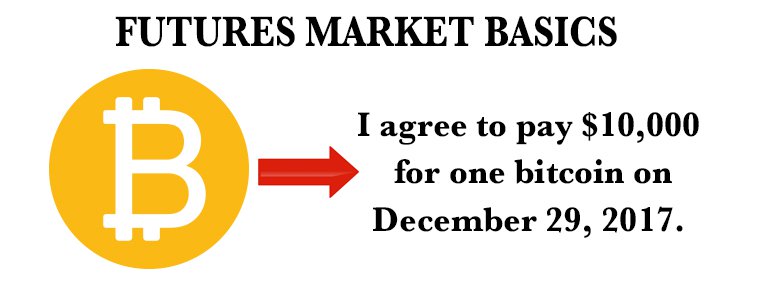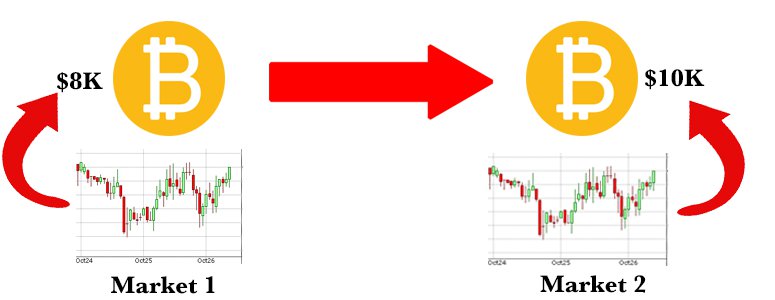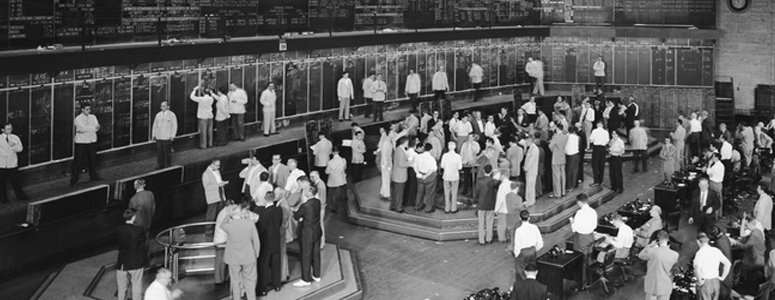As bitcoin gains worldwide attention, there’s lots of discussions lately about futures markets. With companies like LedgerX and some pending bitcoin-based derivatives products coming soon from CME Group and Cboe, leading to some people scratching their heads wondering — What are futures markets and what do they mean for bitcoin?
Also read: Internet Archive Adds Bitcoin Cash and Zcash for Donations
Everyone Keeps Talking About Bitcoin Futures Markets
Over the past couple of years, a few companies have been trying to apply derivative market trading into the world of bitcoin. Lately, people have been following the news of LedgerX swapping a few million worth of bitcoin-based futures products. Further, observers have heard about two of the world’s largest options markets, Cboe and CME Group, trying to build their own futures options tethered to the bitcoin economy. Many people are curious about how these types of trading markets will affect bitcoin’s price and volatility.
What are Bitcoin Futures and Derivatives Markets?
A bitcoin futures contract is a forward agreement to purchase or sell a specific amount of bitcoin, within a specified time frame for a set price.** So if you buy a bitcoin futures contract at a set price at say $10,000 per BTC; you agree to purchase the coin at the contracted rate, on the agreed upon date and the same goes for selling. Futures markets are the exact opposite of spot markets, and exchanges people traditionally use to trade bitcoin these days. Traditional types of spot trades occur immediately, in contrast to forward agreements scheduled for a specified payout date. Bitcoin-based futures derive their price according to the movement of bitcoin’s value, and these markets are very much correlated with the spot price markets.
** Its important to note there is no real bitcoin being exchanged within futures contracts.

Spot and Futures: How Profits and Losses Are Tethered to Arbitrage
Now you may ask yourself why traders would want to agree upon purchasing an asset in the future utilizing a contract. The reason is that individuals and organizations make a lot of money off of arbitrage or taking advantage of the spread between two market prices. The future of bitcoin’s price is always bound to have a different value. For instance, a person could gain profits by practicing a method called ‘cash-and-carry-arbitrage.’ This means a person could take a long position using bitcoin spot markets and a short position in bitcoin-based futures. The same individual could purchase the bitcoin at $9,000 spot, and a BTC futures position at $10,000 and sell the futures contract before the expiration. If the bitcoin’s price reaches $11,000 by the end of the contract you just pocketed $1000 for taking a risk. Of course, you would lose money if bitcoin’s price went below $9000 by the contract’s expiry.

The History of Futures Markets
Active futures markets have been around since the Ancient Mesopotamia times back in 1750 BC. The first known derivatives market was initiated by the Babylonian king Hammurabi. Futures trading has also been found in Aristotle’s writings as well. The first modern derivatives market include the Dojima Rice Exchange in Japan (1700s), the London Metal Market (1800s), and the Chicago Mercantile Exchange (CME Group-1900s). Currently, CME Group is the largest futures marketplace worldwide and is one of the big names bringing bitcoin to the world of derivatives.

Nearly Every Commodity, Product and Stock Worldwide is Played on the Derivatives Markets
Now some people think futures markets will be great for bitcoin as it may streamline more mainstream exposure. Speculators think it might even help with bitcoin’s price volatility as its assumed others are taking on the risk and reward aspect of a turbulent buyers market.
Some people don’t like derivatives markets and think that it’s basically a roulette game. Skeptics believe futures are no different than placing a wager on a horse race, but these days every single world commodity, stock, bond, debt, and now even bitcoin is traded on the roulette table. Because spot markets and futures are so intertwined people believe markets can be manipulated. For instance, people buying futures could also be purchasing bitcoin at spot to make some quick gains. While others may play futures markets, because they know some ‘big bitcoin whale’ might dump next month. Maybe insiders know about some hedge fund about to purchase large quantities of BTC spot, and they bet on a long contract that turns a significant profit. Even though derivatives are somewhat illusionary, they become very real with arbitrage, as outside forces utilizing spot markets can still be used as a correlated tool.
Will Futures Markets Affect Bitcoin Spot Markets? The Answer is Yes
So futures markets could theoretically ‘tame’ bitcoin’s price volatility, but also amplify both bearish and bullish sentiment on spot exchanges. In less than two months some of the biggest financial players in the world will be shooting the dice with bitcoin’s value, and there will likely be an impact on spot markets. If bitcoin futures become more prevalent, then everyday markets will feel the tremors. We just don’t know if that impact will be positive or negative.
What do you think about bitcoin futures markets? Let us know what you think about this type of trading in the comments below.
Images courtesy of Bitcoin.com, CME Group, and the film Back to the Future.
Have you seen our new widget service? It allows anyone to embed informative Bitcoin.com widgets on their website. They’re pretty cool, and you can customize by size and color. The widgets include price-only, price and graph, price and news, and forum threads. There’s also a widget dedicated to our mining pool, displaying our hash power.














